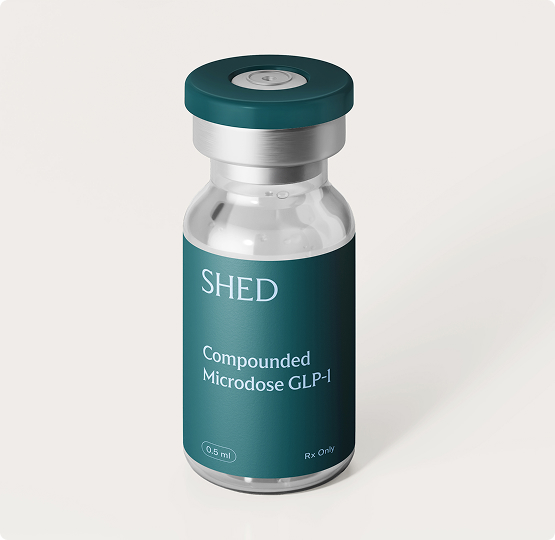When it comes to sports performance and fitness nutrition, few supplements have gotten as much attention as creatine. Scroll through fitness forums or social media, and you’ll see it touted as a must-have for muscle growth, recovery, and even brain health. And truthfully, creatine is one of the most well-researched supplements out there, with consistent evidence behind its benefits.
But what if you’re not into powders or pills? Or you simply prefer a whole-food approach to nutrition? Let’s explore what creatine really is, where the hype comes from, and how you can support your body’s natural creatine levels without supplementation.
What is creatine, really?
Creatine is a compound your body naturally produces from amino acids (the building blocks of protein). About 95% of it is stored in your muscles, where it helps generate quick energy during high-intensity activity—like sprinting, lifting weights, or even powering through a tough workout.
While your body can make creatine on its own, it also comes from the foods you eat—especially animal proteins. That’s why vegetarians and vegans typically have lower creatine stores compared to those who eat meat or fish.
Why the hype?
- Performance and strength: Supplementing creatine has been shown to improve muscle power, recovery between sets, and gains in lean muscle.
- Brain benefits: Emerging research points to creatine’s role in brain energy metabolism, memory, and focus.
- Safety record: Unlike many supplements, creatine has decades of safety data backing its use at recommended levels.
The hype isn’t completely unfounded, but it often makes it sound like you must supplement to get results. That’s not true for everyone, especially if you’re focused on overall health and sustainable nutrition.
Whole-food sources of creatine
If you’d like to support your creatine levels without supplementation, focus on creatine-rich foods. The highest natural sources include:
- Red meat (beef, lamb, pork): One of the richest food sources of creatine.
- Fish (salmon, tuna, cod, herring): Another excellent option—plus, you’ll get omega-3s!
- Poultry (chicken, turkey): Contains smaller amounts but still contributes to your intake.
Note: Plant foods do not contain creatine directly, which is why plant-based eaters may have lower stores. However, you can still support your body’s own production (see below).
Supporting your body’s own creatine production
Even if you don’t eat much animal protein, your body can create creatine from amino acids—particularly glycine, arginine, and methionine. To maximize this process, focus on foods that supply these key amino acids:
- Legumes (beans, lentils, chickpeas)
- Seeds (pumpkin, sunflower, sesame)
- Nuts (almonds, walnuts, peanuts)
- Whole grains (brown rice, oats, quinoa)
- Eggs (rich in methionine)
By building balanced meals with protein, fiber, and nutrient-dense carbs, you’re giving your body the tools it needs to create creatine naturally.
A whole-food perspective
Here’s how you can bring it together in a simple, whole-foods lifestyle:
- Include protein with every meal, which could be something as simple as eggs at breakfast, beans at lunch, and fish at dinner.
- Mix plant and animal sources (if you eat both), ensuring you get a wide range of amino acids.
- Prioritize nutrient density—because your body needs more than just creatine to thrive. Think leafy greens, colorful veggies, and healthy fats that support recovery and energy.
The bottom line
Creatine is worth the hype—but you don’t necessarily need a supplement to reap the benefits. With a whole-foods approach that emphasizes lean proteins, legumes, seeds, nuts, and grains, you can naturally support your body’s creatine levels while also fueling it with the broad spectrum of nutrients you need for energy, recovery, and overall health.
Supplements can be useful, but food should always be your foundation.
FAQs: Creatine and whole-food nutrition
What foods are naturally high in creatine?
Animal proteins are the best food sources of creatine, especially red meat and fish.
Can vegetarians and vegans get creatine from food?
No. Plant-based foods do not contain creatine. However, vegans and vegetarians can still support their body’s creatine production by eating amino acid–rich foods like beans, lentils, chickpeas, seeds, nuts, whole grains, and eggs (for vegetarians).
Do I need a creatine supplement if I eat meat or fish regularly?
If you regularly eat meat or fish, you likely get enough creatine for daily energy and recovery. Athletes or people doing high-intensity training may benefit from supplementation for added performance and muscle support. Always consult with your doctor before starting a new supplement.
How can I increase creatine naturally without supplements?
To boost creatine naturally, eat plenty of meat and fish, as well as a variety of beans, nuts, and whole grains. Include protein with each meal.
Disclaimer
This blog is for educational purposes only and is not medical advice. Individual needs, absorption rates, and responses to creatine vary. Always consult with a qualified healthcare professional before making changes to your diet or supplement routine.
References
Creatine as a food supplement for the general population https://doi.org/10.1016/j.jff.2021.104568
Creatine in health and disease Nutrients. 2021 Jan 29;13(2):447. doi: 10.3390/nu13020447
What is creatine? Potential benefits and risks of this popular supplement. https://www.health.harvard.edu/exercise-and-fitness/what-is-creatine-potential-benefits-and-risks-of-this-popular-supplement
.svg)









